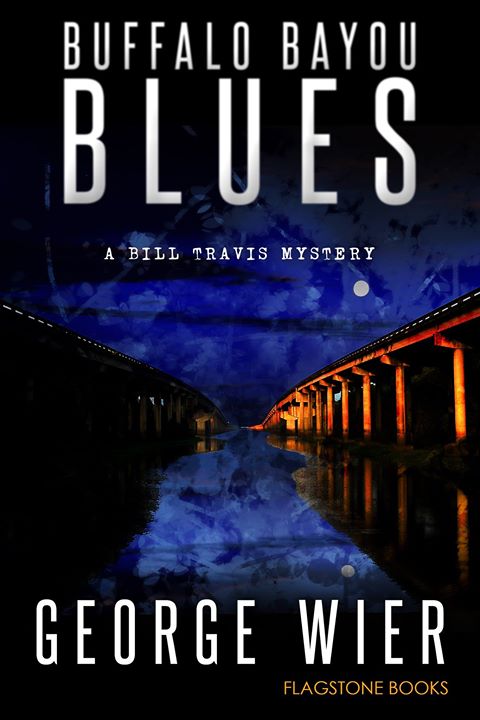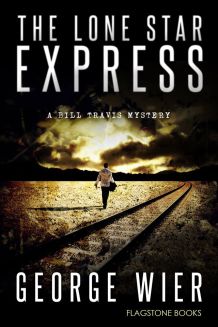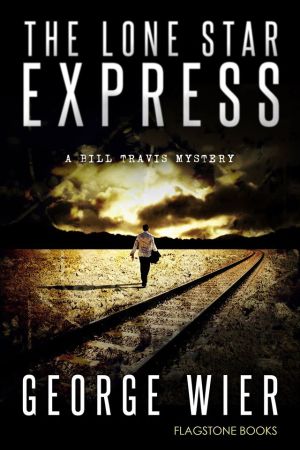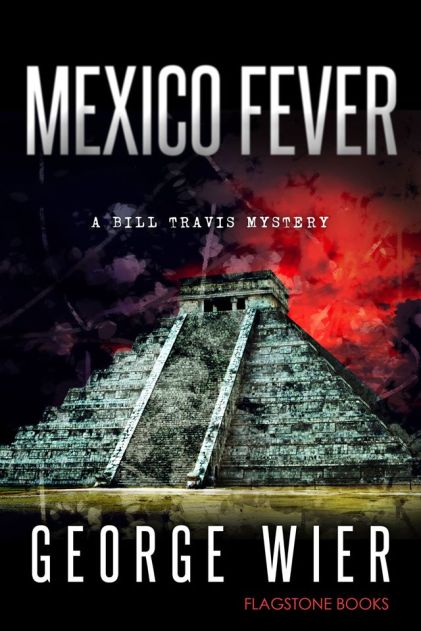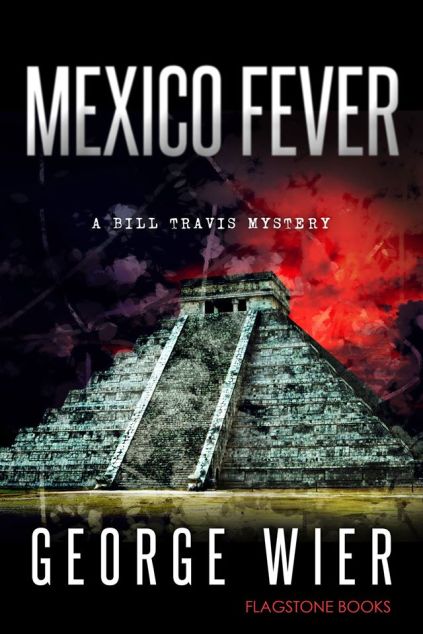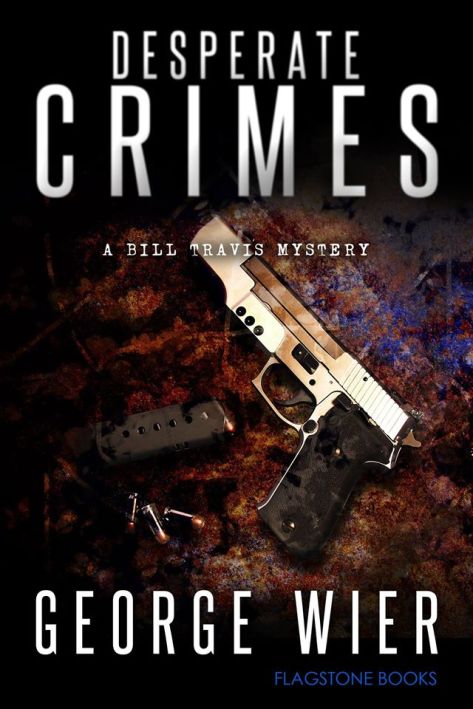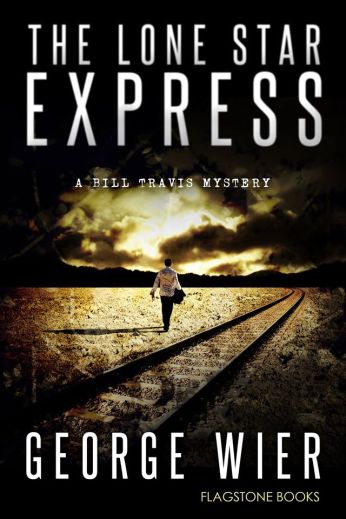
I know I’m a bit of a tease, but here is Chapter One of The Lone Star Express!
CHAPTER ONE
Invest heavily in ammunition. That’s the flip-side of the warning on seeking revenge—the one about first digging two graves. When vengeance seeks you out—as opposed to the other way around—it’s wise to be locked, loaded and ready. But you have to know it’s coming, first.
With me it’s always something like that.
I’m Bill Travis, and apparently I’ve never met a problem I didn’t welcome to come on in and pull up a chair.
It began, innocently enough, with the performance of a good deed. Which brings up the second warning that I somehow bypassed during all the sturm and drang of Governor Richard Sawyer’s final disposition: no good deed goes unpunished.
Here’s how it started.
*****
Former Texas Governor Richard Donegal Sawyer was born in the Louisiana canebrakes back in the dark days of World War II. As an infant he was brought to the Texas Gulf Coast and raised by his father, his mother having died in childbirth. At age sixteen, or thereabouts, Sawyer and his father had a falling out over the fact of the elder Sawyer’s being a bloodthirsty killer and crime boss. The junior Sawyer’s feet carried him all the way to West Texas where he settled down at a life of hard labor as an oil field worker in the Permian Basin—Midland and Odessa. With his passing, at the ripe age of eighty, someone had to go looking for his will. I got that duty, at the request of his granddaughter, Elizabeth.
I was no more than a few days back from Mexico when she asked me. The next morning, I got up before the crack of dawn and drove Julie and a whole truckload of kids down to Houston, and stopped by the Sawyer home.
Julie rocked the baby in the rocking chair in Sawyer’s living room while Elizabeth and I commiserated at the dining room table, thirty feet away. There were a couple of banker’s boxes open on the glass tabletop and the contents—old papers, invoices, random things like insurance policies and old hospital bills—were poured into each box so tightly that both were apt to burst at the seams. I understood the filing system. It’s easier to throw it all in a box, especially after you realize that every single scrap of paper would need its own separate file, and office supply stores don’t typically carry fifty-thousand file folders. At least not in the economy pack.
“Do you mind?” I asked Elizabeth, and gestured with my hand over one of the boxes.
“Please do. I’m afraid to touch any of it. I’ll get immersed in it and won’t see daylight for days on end.”
I nodded and pulled out a thick sheaf of papers, about a reams-worth, and dropped it on the table-top. What spilled out was expired insurance policies, licensing agreements for trucks and tractors, old pay stubs going back to the 1950s and 60s, random photographs; a lifetime’s worth of the detritus of those things that, at the time, could not be simply thrown away. The things a person keeps!
“Yuck,” Elizabeth said.
“Everything here tells a tale,” I said. “If you were to piece it all together, maybe put it in chronological order, you’ve got a piece of the story of your grandfather’s life, which is another part of the story of Texas.”
“I know it’s not all trash, but some of it’s trash,” she said.
“No doubt. Okay, we’re looking for his will. And you say that it’s not tucked away in a safe-deposit box somewhere?”
“Uh uh. I cleaned those out. It wasn’t in there.”
“Then it’s here. Let’s keep looking.”
It took thirty minutes, but I found it. Oddly enough, it was fairly recent and tucked into the front end of the second box, right where you’d put something recent, if you were archiving it. The will was signed, witnessed and notarized roughly six months previous.
I began reading aloud.
“He leaves the whole kit ‘n kaboodle to you, Elizabeth,” I said.
“Let me see.”
I handed it to her and she read it to herself, her lips moving soundlessly and her eyes going back and forth.
“It’s a lot of responsibility for a woman your age. But I’m sure you can handle it.”
“There’s a list of stocks, bonds, all kinds of…”
“Financial instruments,” I finished for her.
“Yeah. Those.”
“It’ll take some time to find out what they’re all worth. No doubt the bulk of them were in the safe deposit boxes.”
“There was a bunch of that stuff in there, but I didn’t understand any of them.”
“I’ll take a look at them for you. For now, I suggest you get your own safe-deposit box and put them away. But after you make photo copies of everything. I’ll need a copy of it all, and I can get Penny at my office working on it in her spare time.”
“Ha. If she works for you, Mr. Travis, I doubt she has very much spare time.”
I chuckled. “You’re probably right. Never thought about it. She doesn’t know it yet, but I’m naming her a full partner on Monday.”
“Then she’s been paying her dues all these years.”
“She has.”
Elizabeth turned a page, moved her eyes down and then struck upon something. She frowned.
“What is it?” I asked.
“A heading: Disposition of Remains.”
“Oh. They’ll need to know about this down at the funeral home. And pretty quick. Before I left Austin, I had a call from the Texas State Cemetery. They’re expecting to bury your grandfather there. It’s where we bury our Governors.”
“Not according to this, it’s not.”
“Crap. I’d better see it. Those guys may have already set aside a plot for him.”
She handed me the will.
“You’ll need to get this filed with the Probate Court as soon as—” I began, but by then my eyes were already taking in the bad news. My own name jumped out at me from the page:
DISPOSITION OF REMAINS
Since I buried my heart in Midland a long time ago, it is my wish that my body be buried there beneath the ancient mesquite. I purchased the plot in 1969, knowing full well that men can easily lose their lives in the oil patch. Further, I request that my friend Walter M. Cannon accompany my body by train to its final destination. If Walt Cannon predeceases me or, due to issues of health or availability, is unable to fulfill this wish, then I request that my dear friend, Bill Travis, should do so.
For many years I have been a supporting member of the Big Thicket Steam Association, headquartered in Palestine, Texas. I request that those old boys—those who have survived me—get the old ‘19 running for one last trip out west, and that I travel each mile between Austin or Houston and Midland by whatever rail line the boys may take. I pray that I may find my rest there in Midland.
“What’s the ‘Old ‘19′?” I thought, then realized I had said it aloud.
“I have no idea.”
“It’s okay. Tell you what, why don’t you ride with us down to the copy store where we’ll make three or four copies of this, then we’ll scoot by the funeral home, drop this off with the director and let him know how to contact me.
I detected a presence at my elbow. It was Julie, gently bouncing the baby.
“What’s going on?”
“It looks like I’m going to West Texas.”
“When? And how?”
“Soon,” I said, thinking all the while about bodies, temperature and steel boxes. “And by train.”
*****
I took the family back home to Austin after making certain that everybody on the Houston end of things was on the same page. The plan was for Governor Sawyer’s body to be transported to the State Capitol, there to lie in state for two days time where all Texans who wanted to might stop by and pay their respects. It’s a time-honored practice, and Sawyer’s will didn’t preclude it. I’m not certain it would have done any good if it had. In the final analysis, while we may suggest what should happen after we’re gone, it’s the family’s wishes that are usually honored, and at any time those wishes may be trumped by the state, particularly in the instance of a dignitary. In the end, we all render unto Caesar, right down to the toenails.
In the meantime, I had a ton of phone calls to make and correspondence to get out in preparation for what was to come—an event to which I was decidedly not looking forward.
I spent an entire day at the office, mostly listening to and receiving updates on Penny’s progress on the stocks and bonds.
At the appointed time—pre-arranged between my partner and me—Nat Bierstone came by the office. He was dressed in a blue jeans, red checkered shirt and suspenders. Penny gasped. She had never seen him in anything other than a business suit.
It had been three weeks since he had come by the office. Both he and I knew that he had already retired, but he was in to make it official.
“Mr. Bierstone, you look like…a real person!” Penny said. I listened from my office, having already glanced out my window when Nat pulled into circular driveway that runs behind the office and out the other side.
“Why thank you, Miss Taylor. Is Bill in? Thought I saw his car.”
“Come on back, Nat!” I called. “Penny, you come in here too.”
I waited. When they were both inside, Nat reached behind him and closed the door.
“Something is happening, isn’t it?” Penny asked. “Are you two about to fire me?”
“In a manner of speaking,” Nat said. She started to protest, but he raised a finger, then gestured to one of the two chairs in front of my desk. “Hush now and have a seat.”
“Yes sir,” she said.
Nat took the other chair, and by way of stretching the moment out interminably, fumbled in his blue jeans pocket for the front door key and the key to his office. He removed them from the key chain and said to Penny, “Hold out your hand.”
She did, and Nat placed the keys in it. “Don’t lose them until after you’ve made another copy. This is the only one to my office in existence.”
“I don’t understand.”
“Nat’s retiring,” I said, “effective today.” I picked up an envelope from the counter and handed it to him. He took it.
“What is that?” Penny asked.
“A check,” I said. “I just bought Nat’s half of the business.”
He looked at the envelope, poked a finger at the inside of the crease, as if he was about to open it with his finger, then instead handed it to Penny.
“You want me to open it for you?” she asked.
“I want you to keep it,” he said. “You can do whatever you want with it, since it’s yours.”
“I—I’m not sure what you mean.” Her voice trembled and had become very small.
“You know what it means,” I said.
“Let me do this, Bill,” he said. “I’ve earned the right.”
“This is where you fire me,” Penny said. She opened the envelope delicately and removed the check. The amount was eight hundred and fifty thousand dollars. Her eyes stared at the thin slip of paper.
“She’s gonna burn a hole in it,” I said.
“You can keep that and cash it,” Nat said, “or you can give it right back to Bill, keep that key of mine, and start worrying about who is going to replace you and become your secretary. Or rather, yours and his.” He hooked a thumb at me.
She looked across the desk at me. “How much is half the practice worth?” she asked me.
I laughed. “Spoken like a true accountant and financial consultant.” I leaned back in my chair and interlaced my fingers over my head. “Worth a hell of a lot more than twice eight-fifty.”
Penny handed the envelope back to me. “Then I suppose we’ll need to start interviewing applicants.”
I stood up and extended my hand.
“Welcome to Travis & Taylor,” I said. She stood slowly, then took my hand and shook it. And then she started crying.
Nat stood. She let go of my hand and threw her arms around his neck, her face disappearing from view. Nat grinned at me and patted her back.
When she released him, she stood and wiped the tears from her eyes, then slowly handed the check back to me.
“Go ahead and re-deposit it in the practice account. And make an appointment at the bank. You’re to be signatory to that account from now on, so consider that you just paid yourself back.”
“Who’s idea was this?”
“All three of us,” I said. “Nat, me, and Julie as well.”
“I wish she were here.”
“Don’t worry,” I said. “She made me promise to give her the play-by-play tonight.”
“I don’t know what to say,” she said.
I laughed. “There’s a first time for everything.”
“I’ll try to be a good partner for you, Mr. Travis.”
“Penny, now that it’s official, you are required to call me Bill. I won’t have a partner who can’t say my name.”
“Mr. Bierstone calls you William.”
“He can get away with it because he’s older than I am, he’s the former Lieutenant Governor of Texas, and worse than that, he’s Julie’s uncle.” I grinned at her. “You can’t.”
“Okay, Bill,” she said. And you could have knocked me over with a feather.


